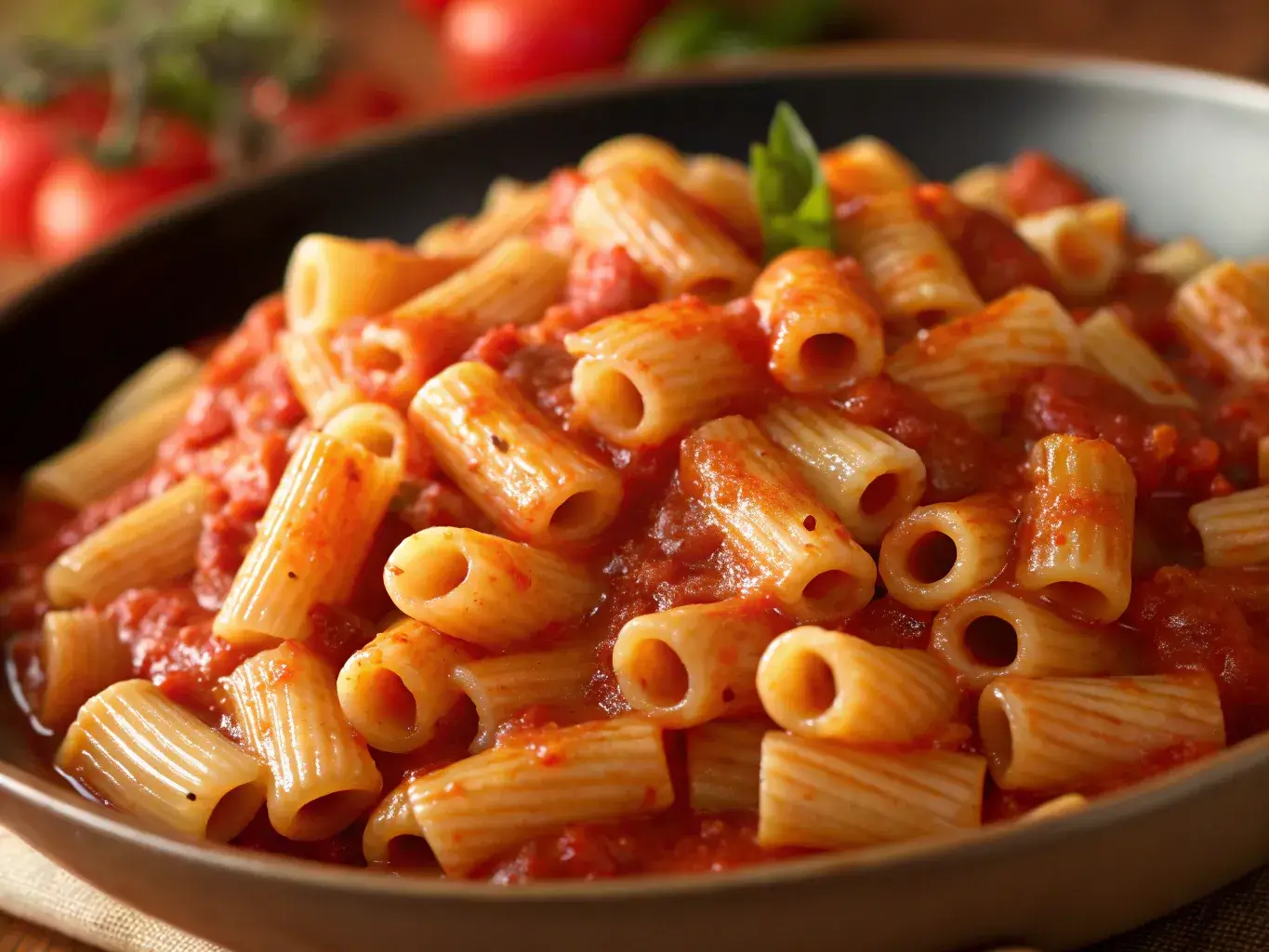Discover the amazing versatility of ditalini pasta in this ultimate guide. Explore recipes, cooking tips, and more.
The Allure of This Small Pasta: A Tiny Delight
This small ditalini pasta, with its small, thimble-like shape, might seem unassuming. However, it packs a lot of culinary punch. Indeed, it is a popular choice in many dishes. It works beautifully in soups, stews, and even pasta salads. Its versatility makes it a pantry staple. Therefore, let’s delve deeper into what makes this type of pasta so special.
Print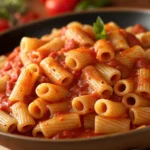
Delectable Ditalini Pasta: An Amazing Culinary Adventure
- Total Time: 30 minutes
- Yield: 4 servings 1x
- Diet: Vegetarian
Description
Ditalini pasta is a small, tube-shaped pasta perfect for soups, pasta salads, and hearty stews. This simple recipe highlights its versatility with fresh vegetables, beans, and savory broth.
Ingredients
- 1 cup ditalini pasta
- 1 tablespoon olive oil
- 1/2 onion, finely chopped
- 2 cloves garlic, minced
- 1 carrot, diced
- 1 celery stalk, diced
- 1 (15 oz) can white beans, drained and rinsed
- 4 cups vegetable or chicken broth
- Salt and black pepper to taste
- Grated Parmesan and fresh parsley for garnish (optional)
Instructions
- 1. In a medium pot, heat olive oil over medium heat.
- 2. Add onion, carrot, and celery. Sauté for 5–7 minutes until softened.
- 3. Stir in garlic and cook for 1 minute.
- 4. Add broth and bring to a boil.
- 5. Stir in ditalini pasta and cook until al dente, about 8–10 minutes.
- 6. Add white beans and simmer for another 2 minutes to heat through.
- 7. Season with salt and pepper to taste.
- 8. Ladle into bowls and top with Parmesan and parsley if desired.
Notes
- Ditalini is excellent in pasta e fagioli or chilled pasta salads.
- Use whole wheat ditalini for added fiber.
- This base recipe can be customized with spinach, kale, or diced tomatoes.
- Prep Time: 10 minutes
- Cook Time: 20 minutes
- Category: Soup
- Method: Stovetop
- Cuisine: Italian
Nutrition
- Serving Size: 1 1/2 cups
- Calories: 290
- Sugar: 3g
- Sodium: 540mg
- Fat: 6g
- Saturated Fat: 1g
- Unsaturated Fat: 4g
- Trans Fat: 0g
- Carbohydrates: 46g
- Fiber: 6g
- Protein: 12g
- Cholesterol: 0mg
Keywords: ditalini pasta, pasta soup, pasta e fagioli, vegetable pasta bowl
Defining This Small Shape of Ditalini Pasta
This small shape of pasta is short and cylindrical. It resembles small thimbles or tiny tubes. Furthermore, “ditalini” comes from the Italian word “ditale”, meaning thimble. This shape allows it to hold sauces and flavors effectively. Additionally, it’s often made from durum wheat semolina. This contributes to its al dente texture.
Historical Roots and Regional Variations
The origins of this ditalini pasta variety trace back to Italy. Its simple design has made it a mainstay across regions. For example, in Sicily, it is often used in hearty minestrone. Similarly, it’s a go-to for pasta e fagioli in other areas. Comparatively, the recipes vary, but the pasta remains constant. Moreover, this historical versatility underscores its timeless appeal.
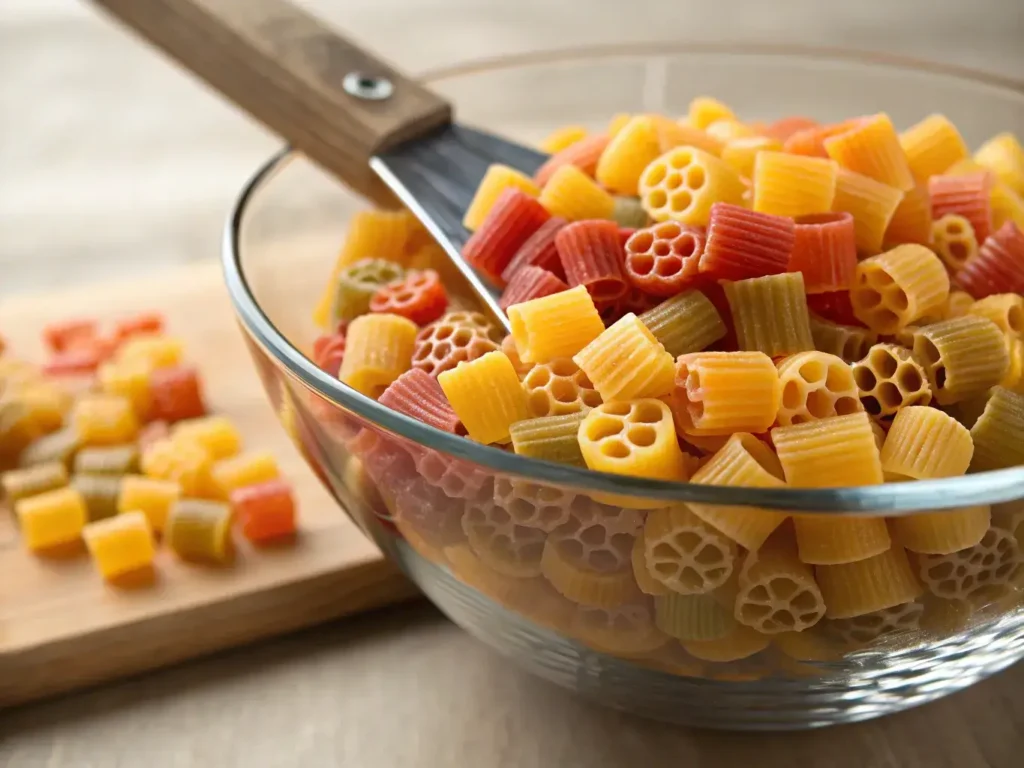
Cooking This Cylindrical Ditalini Pasta: A Step-by-Step Guide
Cooking this ditalini pasta is straightforward, however, attention to detail is key. Here are the fundamental steps to achieve perfect results every time.
The Basics of Boiling
First, bring a large pot of salted water to a rolling boil. Then, add the small pasta. Stir gently to prevent sticking. Subsequently, cook for the time indicated on the package, or until al dente. Al dente means “to the tooth” in Italian. This means it will be firm but tender. Therefore, avoid overcooking to prevent it from becoming mushy.
Draining and Rinsing (or Not)
Once cooked, drain the tube-shaped pasta in a colander. Generally, rinsing is not necessary. However, if using it in a cold salad, a quick rinse with cold water can halt the cooking process. Otherwise, simply drain it well and proceed with your recipe.
Tips for Perfect Texture
To achieve perfectly cooked ditalini, ensure the water is fully boiling. Also, use enough water to allow it to move freely. Stir occasionally during the cooking process. Finally, taste a piece before draining to ensure it has reached the desired texture.
Amazing Recipes Showcasing This Ditalini Pasta
This pasta‘s adaptability makes it a great choice for many recipes. From soups to salads, it adds a lovely texture and flavor. Indeed, here are several ideas to inspire your cooking.
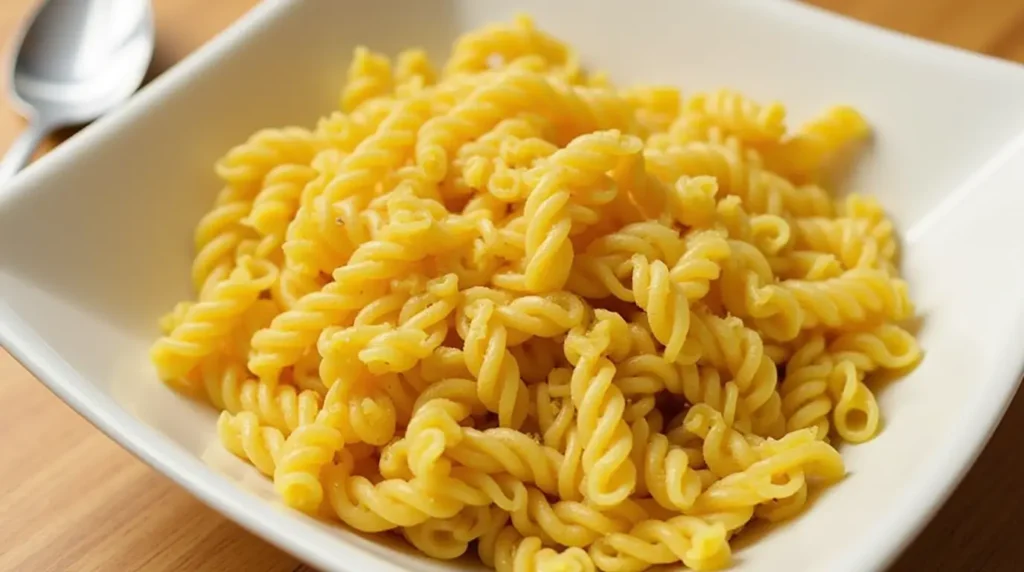
Hearty Soups and Stews
This small pasta shines in soups and stews. Its small size makes it easy to eat with a spoon. For example, consider adding it to a minestrone with vegetables and beans. Likewise, it pairs well with lentil soup for a more substantial meal. Moreover, it absorbs flavors while retaining its shape.
Pasta Salads: A Summer Staple
Use this ditalini pasta to create a refreshing summer salad. Chiefly, combine it with fresh vegetables, herbs, and a light vinaigrette. Alternatively, add grilled chicken or feta cheese for protein. Its small size makes it perfect for individual servings. Consequently, it’s ideal for picnics and potlucks.
Baked Pasta Dishes
For a comforting baked dish, add this pasta shape to a casserole. Specifically, combine it with a rich tomato sauce, cheese, and your choice of protein. Another idea is to use it in a cheesy bake with ham or vegetables. Eventually, you’ll have a delicious and satisfying meal.
Exploring This Pasta with Various Sauces
ditalini pasta is a great match for both simple and complex sauces. Its shape allows it to hold onto sauces well. Thus, every bite is flavorful.
Simple Tomato-Based Sauces
This pasta pairs excellently with classic tomato sauces. For instance, a simple marinara with garlic and herbs works well. Further, you can enhance it with a touch of red pepper flakes for some heat. Subsequently, this combination is a classic for a reason.
Creamy and Cheesy Sauces
For a richer experience, try this pasta with a creamy sauce. Specifically, a cheesy Alfredo or a pesto cream sauce is a good option. In addition, you can add some cooked chicken or mushrooms for a more complete meal. Furthermore, the small pasta pieces ensure each bite has plenty of flavor.
Pesto Perfection
Pesto sauce and this small pasta are a delightful match. Specifically, the small pasta pieces will perfectly capture the flavorful pesto. Additionally, you can add roasted pine nuts or cherry tomatoes for extra texture. Therefore, the result is a simple, yet flavorful dish.
Vegetarian Ditalini Pasta Recipes
This ditalini pasta is also a perfect choice for vegetarian recipes. Undoubtedly, its mild taste makes it a great canvas for various vegetables and flavors.
Roasted Vegetable Medley
Combine this style of pasta with a mix of roasted vegetables. For example, bell peppers, zucchini, eggplant, and onions are a good choice. Also, add some herbs and a sprinkle of parmesan cheese. Moreover, this is a nutritious and flavorful meal.
Spinach and Ricotta Delight
For a simple yet delicious meal, try this pasta with spinach and ricotta. Specifically, sauté some spinach with garlic, then toss it with the pasta and ricotta cheese. Furthermore, you can add some lemon zest for brightness. Eventually, this makes for a light yet satisfying vegetarian option.
Mediterranean Flavors
Bring the flavors of the Mediterranean to your kitchen. Chiefly, mix this pasta shape with sun-dried tomatoes, olives, artichoke hearts, and feta cheese. In addition, drizzle with olive oil and a touch of lemon juice. Consequently, this is a flavorful and vibrant vegetarian option.
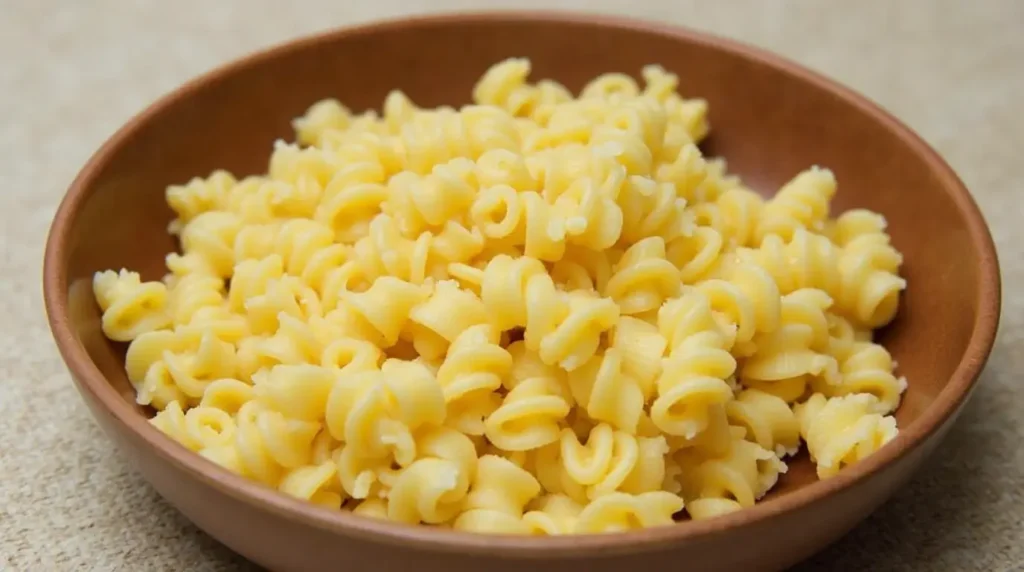
This Pasta with Meat and Poultry
Ditalini-style pasta pairs nicely with a variety of meats and poultry. Indeed, it is a versatile pasta that can adapt to different flavors and textures.
Classic Meatball Combination
A classic pairing is this tiny pasta with meatballs. Accordingly, toss the pasta with a rich tomato sauce and add some homemade or store-bought meatballs. Also, sprinkle with fresh basil or parsley for an extra touch. Moreover, this meal is a comforting and satisfying option.
Chicken and Vegetable Delight
Add this variety of pasta to a dish with chicken and vegetables. For instance, sauté some chicken with your favorite vegetables and then toss it with the cooked pasta. Also, a simple lemon and herb sauce pairs perfectly with this dish. Therefore, this is a nutritious and delicious choice.
Ground Beef Recipes
This shape of pasta also works well in recipes using ground beef. Specifically, create a hearty sauce with ground beef, onions, garlic, and tomatoes. Then, toss it with the cooked pasta and sprinkle with cheese. Consequently, the result is a robust and flavorful meal.
International Flavors with This Type of Ditalini Pasta
Explore cuisines from around the world by using this type of pasta. Indeed, its versatility makes it a perfect ingredient to play with different flavors.
Italian Classics
Beyond the basics, try this pasta in regional Italian dishes. For example, Pasta e Fagioli, a classic soup with beans, utilizes this pasta perfectly. Additionally, it is great in Pasta al Forno, a baked pasta dish with various cheeses and sauces. Thus, you can find endless inspiration in Italy’s diverse culinary landscape.
Greek Inspirations
Use this pasta as a base for Greek-inspired salads and side dishes. Specifically, combine it with Kalamata olives, feta cheese, cucumbers, tomatoes, and a lemon-herb dressing. Also, you can add grilled chicken or chickpeas for protein. Therefore, this will create a delicious and nutritious dish.
Fusion Experiments
Don’t be afraid to experiment by combining this small pasta with flavors from different cultures. For instance, try adding some Asian-inspired sauces and vegetables. Alternatively, use it in a Southwestern-style salad with corn, beans, and a spicy dressing. Eventually, you’ll find unique and exciting flavor combinations.
Tips for Storing and Reheating
To ensure the best experience with this pasta style, proper storage and reheating techniques are essential. Unquestionably, this will help you maintain the quality of your meals.
Storage Methods
For leftover cooked this pasta, store it in an airtight container. Furthermore, make sure to cool the pasta quickly before refrigerating it. Also, store the sauce separately to prevent the pasta from getting soggy. Eventually, this approach will help maintain the quality and texture of the pasta.
Reheating Guidelines
When reheating ditalini, add a touch of moisture to prevent it from drying out. Specifically, you can add a little water or broth. Similarly, microwaving is a quick option, but consider using a stovetop for more control over texture. Moreover, gently stir while reheating to ensure it heats evenly.
Preventing Soggy Pasta
To prevent your small pasta from becoming mushy, always drain it thoroughly. Additionally, avoid letting it sit in water after cooking. Likewise, toss it with the sauce immediately or cool it down quickly if storing it for later. Indeed, these steps help preserve its texture.
Health Benefits and Nutritional Value
This small-shaped pasta, like other pasta, offers certain nutritional benefits. However, it’s important to consume it as part of a balanced diet.
Carbohydrates and Energy
This pasta type is primarily a source of carbohydrates. These provide your body with energy. Nevertheless, choosing whole wheat varieties can increase the fiber content. Therefore, this helps to manage your energy levels throughout the day.
Fiber Content
Whole wheat ditalini pasta contains more fiber. Specifically, fiber is important for digestion and promoting gut health. Moreover, it can also contribute to a feeling of fullness, which can be beneficial for weight management. Accordingly, selecting a higher fiber option is always beneficial.
Other Nutrients
While this short pasta might not be a major source of micronutrients, it does provide some minerals and vitamins. For instance, some pasta might be fortified with iron or B vitamins. However, it’s crucial to ensure a balanced diet that includes a variety of nutrients from other sources.
Want to make this cake your own? Here are some fun ideas to customize your lemon blueberry mascarpone cake
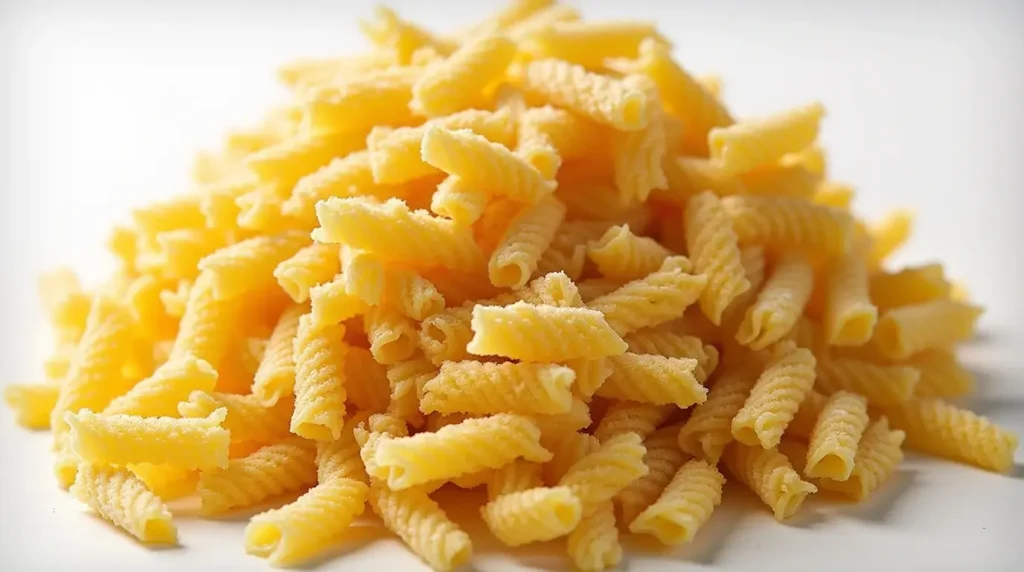
Frequently Asked Questions (FAQs) about Ditalini Pasta
Here are some of the most common questions about this pasta and how to use it in recipes.
Ditalini Pasta Recipe Garlic Parmesan
A simple and classic dish includes this pasta with garlic and Parmesan cheese. First, cook the pasta until al dente. Then, sauté garlic in olive oil, toss with the pasta and finish with grated Parmesan and fresh parsley. Therefore, this results in a quick and tasty meal.
Ditalini Pasta Recipes with Chicken
This small pasta is a versatile ingredient for chicken dishes. Specifically, sauté chicken with vegetables, toss it with the cooked pasta and add a creamy or tomato-based sauce. Also, you can bake it all together for a comforting casserole. Eventually, the combination offers endless possibilities.
Italian Ditalini Pasta Recipe
Many classic Italian recipes utilize this pasta. For example, minestrone, pasta e fagioli, or pasta al forno are excellent choices. Accordingly, these recipes often combine this pasta with fresh ingredients and flavorful sauces. Moreover, these dishes are perfect for showcasing the simplicity and flavor of Italian cooking.
Ditalini Pasta Recipes with Ground Beef
Ground beef pairs well with this pasta type. For instance, create a hearty meat sauce with ground beef, tomatoes, onions, and garlic. Next, toss it with the cooked pasta and top with grated cheese. Thus, it makes for a satisfying and easy meal.
Ditalini Pasta Recipes Vegetarian
This pasta variety offers great options for vegetarian meals. For instance, combine it with roasted vegetables, pesto, spinach, and ricotta, or a Mediterranean-style mix. Likewise, these recipes are versatile, nutritious, and flavorful. Indeed, they are great examples of simple vegetarian cooking.

